Related Research Articles
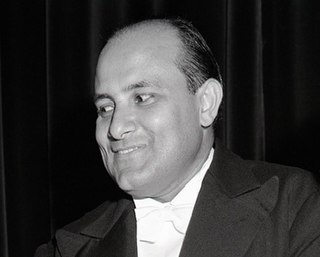
Leonard Warren was an American opera singer. A baritone, he was a leading artist for many years with the Metropolitan Opera in New York City. Especially noted for his portrayals of the leading baritone roles in the operas of Giuseppe Verdi, he had few rival baritones in his time. His power and range were the highlights of his vocal instrument.
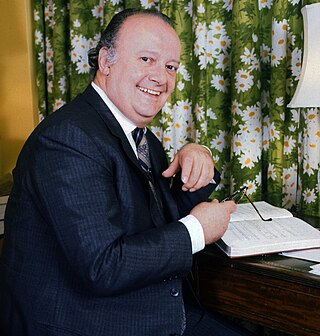
Tito Gobbi was an Italian operatic baritone with an international reputation.
Lawrence Winters(néLawrence Lafayette Whisonant; 15 November 1915 King's Creek, South Carolina – 24 September 1965 Hamburg, Germany), bass-baritone, was an American opera singer who had an active international career from the mid-1940s through the mid-1960s. He was part of the first generation of black opera singers to achieve wide success and is viewed as part of an instrumental group of performers who helped break down the barriers of racial prejudice in the opera world. He began his opera career at the New York City Opera in 1946 during a time when the NYCO was one of the few American opera companies hiring black artists. He sang a varied repertoire there through 1955, after which his career was largely based in Europe until his death at the age of fifty.

Frances Yeend was an American classical soprano who had an active international career as a concert and opera singer during the 1940s through the 1960s. She had a long and fruitful association with the New York City Opera (NYCO) between 1948 and 1958, after which she joined the roster of principal sopranos at the Metropolitan Opera where she sang between 1961 and 1963. She also had an extensive concert career, particularly in the United States. By 1963 she had sung in more than 200 orchestral concerts in North American with major symphonies like the New York Philharmonic, the Boston Symphony Orchestra, the Philadelphia Orchestra, the Cleveland Orchestra, and the Chicago Symphony Orchestra among others.
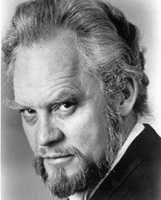
Thomas Stewart was an American bass-baritone who sang an unusually wide range of roles, earning global acclaim particularly for his performances in Wagner's operas.
Chester Ludgin was an American operatic baritone.
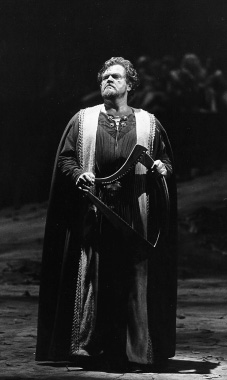
Richard Cassilly was an American operatic tenor who had a major international opera career between 1954–90. Cassilly "was a mainstay in the heldentenor repertory in opera houses around the world for 30 years", and particularly excelled in Wagnerian roles like Tristan, Siegmund and Tannhäuser, and in dramatic parts that required both stamina and vocal weight, such as Giuseppe Verdi's Otello and Camille Saint-Saëns's Samson.
Tulsa Opera is an American opera company based in Tulsa, Oklahoma.

Daniele Barioni was an Italian opera singer who had a prolific career during the 1950s through the 1970s. Early on in his career he rose to fame as a leading tenor at the Metropolitan Opera between 1956 and 1962. Afterwards he worked primarily in opera houses and concerts throughout the United States, although he did make numerous appearances in both Europe and South America as well. Barioni was particularly associated with the operas of Giacomo Puccini and the roles of Turiddu in Pietro Mascagni's Cavalleria rusticana and Alfredo in Giuseppe Verdi's La traviata.

Karl Gustaf Ingvar Wixell was a Swedish baritone who had an active international career in operas and concerts from 1955 to 2003. He mostly sang roles from the Italian repertory, and, according to The New York Times, "was best known for his steady-toned, riveting portrayals of the major baritone roles of Giuseppe Verdi — among them Rigoletto, Simon Boccanegra, Amonasro in Aida, and Germont in La traviata".

Anselmo Colzani was an Italian operatic baritone who had an international opera career from the late 1940s through 1980. He particularly excelled in the Italian repertory and was most associated with the works of Giuseppe Verdi and Giacomo Puccini. He began his career in Italy in 1947 where he quickly became a regular presence at that country's best opera houses, including La Scala. In the mid-1950s he began appearing at major opera houses throughout Europe and the United States. In 1960 he joined the roster at the Metropolitan Opera where he spent most of his time through 1978. Opera News commented that while his voice may have "lacked the sheer beauty [of other baritones], his performances had an Italianate urgency and forthright thrust that were unique, which established himself as a powerful, striking presence."
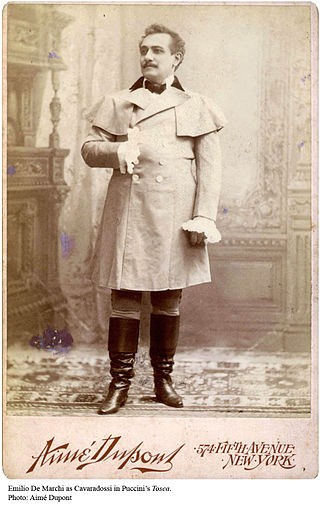
Emilio De Marchi was an Italian operatic tenor. He had a significant career during the late 19th and early 20th century, appearing at major theatres on both sides of the Atlantic. In 1900, he entered the annals of musical history as the creator of the role of Cavaradossi in Giacomo Puccini's Tosca. Today, however, he has largely been forgotten because, unlike many of his contemporaries, he did not leave a legacy of commercial gramophone or phonograph recordings.
William Dooley was an American bass-baritone singer who performed with many prominent opera companies. He began his career in Germany in the late 1950s, ultimately becoming a leading performer at the Deutsche Oper Berlin from 1962 to 1964. He then embarked on a highly successful career at the Metropolitan Opera where he sang regularly between 1964 and 1977. Between 1977 and 1982 he sang regularly at the Vienna State Opera, after which he remained active as a freelance artist on the international stage through the early 1990s.
Arthur Newman was an American operatic baritone and actor. He began his career as a stage actor in St. Louis in the early 1930s and in 1939 began an opera career. He was notably a member of the New York City Opera between 1945 and 1959 during which time he performed in more than 1,300 performances with the company in over 50 roles.
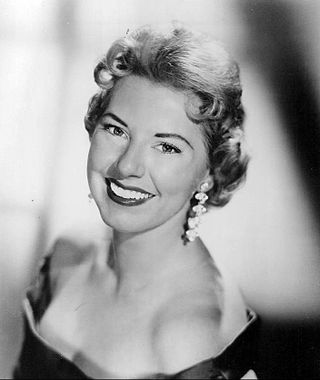
Beverly Bower was an American operatic soprano who had an active international opera career from the mid-1950s through the early 1970s. She began her opera career at the New York City Opera where she sang between 1956 and 1963. She later worked mainly as a freelance artist with important opera companies throughout the United States and with a few opera companies in Europe.
William Chapman was an American operatic baritone and stage actor. He appeared in several Broadway productions and was notably a leading performer at the New York City Opera from 1957 through 1979.

Mark Delavan is an American operatic bass-baritone. He was a national finalist of the Metropolitan Opera auditions and an Adler Fellow with the San Francisco Opera.
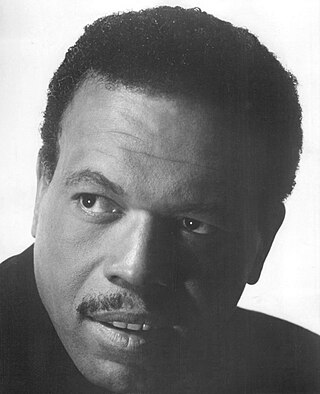
Robert Mosley was an American operatic bass-baritone. Part of the first generation of African-American opera singers to achieve wide success, he performed in numerous opera productions, recitals, and in concerts from the 1950s through the 1990s. In 1957 he won the Metropolitan Opera National Council Auditions. He drew particular acclaim for his portrayal of Porgy in George Gershwin's Porgy and Bess, a role which he portrayed in the landmark 1976 Houston Grand Opera production, on Broadway, and at the Metropolitan Opera among other opera companies both in the United States and in Europe.
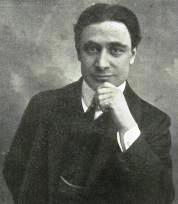
Giovanni Polese was an Italian operatic baritone who had an active international singing career from 1894-1928. He achieved the height of his success in the United States in the years 1908-1916 in the cities of Boston, Chicago, New York, and Philadelphia, and again from 1926-1928 in Chicago. While he sang a broad repertoire from the French, German, and Italian repertoires, he was most celebrated for his performances in the operas of Giuseppe Verdi. His voice is preserved on more than 20 recordings made by Edison Records.
Quinn Kamakanalani Kelsey is a Hawaiian baritone, who is particularly noted for his performances in operas by Verdi. He has been featured in leading roles by the Metropolitan Opera in New York City, as well as other major opera companies in America and Europe.
References
- 1 2 3 Anthony Tommasini (July 8, 2000). "Walter Cassel, 90, Commanding Met Baritone". New York Times . Retrieved August 11, 2009.
- 1 2 Metropolitan Opera archives
- 1 2 3 "Obituaries:Walter Cassel". Opera News . September 2000. Retrieved August 11, 2009.
- ↑ T.S. (January 12, 1948). "PROGRAM OF SONGS BY WALTER CASSEL; Baritone in Local Bow Offers Bach, Handel, Thomas Arias in Town Hall Program". New York Times . Retrieved August 11, 2009.
- ↑ C.H. (April 2, 1948). "'Tosca' Revived by City Opera Company; Wilma Spence, Petrak, Cassel Sing Leads". New York Times . Retrieved August 11, 2009.
- ↑ "To Tell the Truth - Ronald Reagan on panel! (Sep 23, 1958)". YouTube .